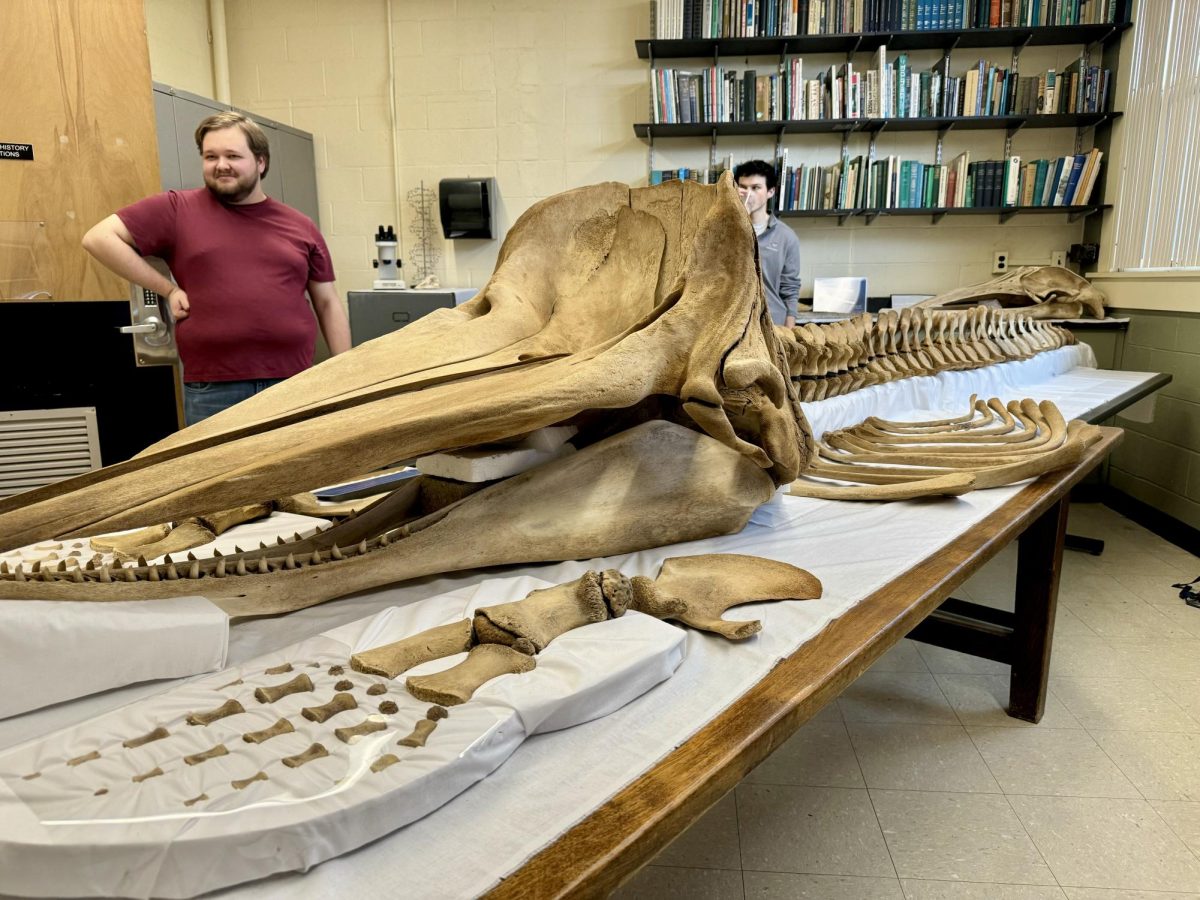By Johnny Donaldson
Collegian Staff
Thirteen
Directed by Catherine Hardwicke
Starring Evan Rachel Wood Holly Hunter
Fox Searchlight
95 mins
Rated R
Grade: A-
The first thing you notice about “Thirteen” is the way it looks. It’s shot, by Elliot Davis, with a grainy, restless, hand-held urgency that plunges you, at every moment, into the startling heart of the scene. The camera rattles forward, into tattoo parlors and broken homes, never settling for a second, and it captures the twitchy soul of its heroine.
The second thing you notice is the performance of Evan Rachel Wood. She’s a young actress in the blonde cutie-pie mode of Kirsten Dunst and Reese Witherspoon, but she acts with a fearless, raging inner fire that is hardly seen in the placid starlet demeanor of her cohorts. It’s there in her eyes; in the way that Wood registers repulsion and ecstasy, panic and desire in one single glance. As Tracy, a sweetheart of a 7th grader whose life falls apart as she descends into the swamp of sex and drugs, Wood captures the fragility of a girl who is watching her innocence drain away, and is too afraid – and too enamored – to do anything about it.
Catherine Hardwicke’s “Thirteen” is a devastating, if somewhat lurid, youth-gone-wild melodrama. It’s a portrait of a young girl who slides slowly – inexorably – down the rabbit hole of self-destruction, and it has a harrowing, brutal impact. There’s a whiff of exploitation about “Thirteen,” but there’s no denying the fact that Hardwicke has captured the treacherous emotional potholes of puberty in all their dangerous, foreign allure.
At first Tracy is a good-girl in robin’s egg blue socks, chatting with her studious friends and smiling with the sweetly dreamy grin of an angel. Then she spies Evie Zamora (Nikki Reed, who co-wrote the screenplay, based partially on her own life, with Hardwicke at age 13) a sultry popular girl in a lace-up halter-top and S’M studded bracelets. Tracy is hit by the pangs of adolescence – the jealousy and, even more, the need to be one with the crowd – and she’s drawn into Evie’s orbit. Tracy steals a wallet to fit in, and from there on in, she and Evie are the best of friends, going on shoplifting sprees, dressing like junior prostitutes, smoking pot and getting down with the boys.
“Thirteen” is a horror movie in which the monster is the all-consuming pubescent urge to fit in. Tracy starts out as a baby-faced good girl, and turns, with stunning speed, into a howling, demonic windstorm of unchecked youthful rebellion. As Tracy delves deeper into Evie’s wanton abyss, she casts off her nice-girl image, and with it, any vestige of humanity. She flaunts a newfound casual cruelty, tossing off withering putdowns with a cunning, defiant glee. She reserves her most bilious venom for her mother’s live-in, recovering-addict boyfriend (Jeremy Sisto) and for her hippie hairdresser mother (Holly Hunter), a woman who has, to this point, acted more as a cool older sister than mother. Hunter, with her wide, lost eyes, perfectly embodies the panicked soul of a woman who can do nothing, but watch as her child gives in to the wicked forces of temptation.
Hardwicke at times lays the darkness on too thickly, but “Thirteen” has an undeniable raw power. There’s some rich commentary here about the corruptibility of innocence by the forces of consumerism, the way that societal ideals about image and belonging prey on the insecurities of confused youth. Hardwicke repeatedly swings her camera back to the image of a bus stop poster for perfume, a symbolic totem of the consumerist culture’s vulture-like preying on the young.
Reed, in her acting debut, amazes as the Lady MacBeth-like Evie, a young woman who has the charisma to pull others into her hell, but also shows the vulnerability of a broken girl who may have once been as sweet and unguarded as Tracy.
But “Thirteen” is ultimately owned by Wood’s courageous portrayal of Tracy. Watch the scene where she hungrily tries to seduce, with Evie, a twentysomething stud or the scene in which she uses scissors to pierce her forearm in an effort to release her torment. Wood conveys the nervous, ambivalent stir of emotions that shape her downfall – the anger, the frustration, the fear, the joy and the desire to erase any form of her old self from existence. “Thirteen” is a frighteningly dark and painful portrayal of rebellion at its most hellish and destructive, but it has an aura of startling power.






